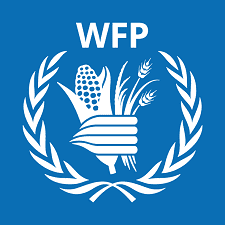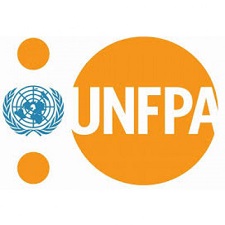🇸🇱 Job Vacancy @ National Programme Coordination Unit (NPCU) – Rural Finance Officer
Job Description
| International Fund for Agricultural Development (IFAD) | Ministry of Agriculture and Food Security (MAFS) |
 Rural Finance and Community Improvement Programme II
Rural Finance and Community Improvement Programme II
(RFCIP II)
VACANCY ANNOUNCEMENT
ISSUE DATE: 14th May, 2024
Date of Submission: 3rd June, 2024
The Rural Finance and Community Improvement Project (RFCIP) first ran from 2008 to 2013. Based on its achievements, RFCIP-II was created to boost the capabilities of rural financial institutions (RFIs). This aims to expand their reach and provide services tailored to the needs of rural communities.
The overall goal of RFCIP-II is to achieve lasting reductions in rural poverty and household food insecurity. The project aims to achieve this by improving access to financial services in rural areas, ultimately supporting the development of the agricultural sector. RFCIP-II expands the original project to encompass the entire nation and collaborates with other initiatives supported by IFAD and donors. The project has two main parts:
- Component 1: Strengthening the Rural Financial System: This component focuses on developing financial products that encourage agricultural production and its commercialization. It also aims to ensure that at least 35% of the rural population has access to rural financial services.
- Component 2: Project Management and Coordination
The program emphasizes a business-based approach. This starts with establishing Financial Services Associations (FSAs) and Community Banks (CBs) based on sound business plans and following business principles. This focus on business extends to agricultural financing as well. The program promotes farming as a business and uses it as a criterion for loan eligibility.
The program takes a comprehensive approach that strengthens the financial services sector as its main component. This is complemented by technical assistance provided through the establishment of the APEX Bank. Liquidity is ensured by capitalizing the Community Banks to meet minimum capital requirements and by setting up an agricultural finance facility (AFF) dedicated to agricultural financing.
The Government of Sierra Leone and the International Fund for Agricultural Development (IFAD) through a negotiated Financing Agreement established the second phase of the Rural Finance and Community Improvement Programme (RFCIP II) based on a successful implementation of the RFCIP phase one. This became effective in July 2014 to consolidate the rural finance system in Sierra Leone. Both phases of the RFCIP with support from the Global Agriculture and Food Security Programme (GAFSP) and BSL have established 76 Rural Financial Institutions (RFIs) namely 17 Community Banks (CBs) and 59 Financial Services Associations (FSAs) across the country. It has also established an Apex Bank charged with the responsibility of monitoring and supervising all 76 institutions.
On 30th December 2022, the Government of Sierra Leone requested to access US$15 million of the IFAD12 Performance Based Allocation System (PBAS) for scaling up RFCIP-II results. More specifically, these additional resources were requested to (i) increase project outreach and respond to the unmet demand for agricultural production loans, and (ii) digitize the network of rural financial institutions (Community Banks (CBs), Financial Services Associations (FSAs) under the regulatory supervision of the Apex Bank), to expand the range of quality products and services to the benefit of project target groups (small scale farmers and rural micro and small enterprises).
The RFCIP II is implemented by the National Programme Coordination Unit (NPCU) through the Ministry of Agriculture and Food Security (MAFS).
TERMS APPOINTMENT: The appointments shall be for an initial period of one year and shall be renewable based upon satisfactory performance.
Rural Finance Officer (1)
Duty Station: Bo
Responsibilities
The Rural Finance Officer, under the direct supervision of the Programme Coordinator, will support the NPCU and Apex Bank with technical support to roll-out the Additional Financing 2 and conduct the tasks identified below:
- Organizational Setting:
The National Programme Coordination Unit plays a key role in project implementation, with a mandate that consists of coordinating programme activities, managing programme resources and monitoring programme operations; its evaluation function is of particular importance.
The NPCU has a Subsidiary Agreement with the APEX Bank (APEX), registered under the Other Financial Services Act (2001) is a service provider to CBs and FSAs that includes Audit & Inspection, managing the Agricultural Finance Facility, providing training, establishing FSAs and CBs, providing Management and Technical Support, MIS support etc.
The mission of the Apex Bank is to provide vital banking and non-banking support services to the Community Banks and Financial Services Associations to improve their operational efficiency and effectiveness and thereby transform them into efficient financial intermediaries/ institutions capable of serving the communities in which they operate, and also discharging some of the functions of the BSL delegated through a MoU.
CBs are rural deposit-taking institutions that offer deposits, remittances and loans to the communities. They offer other services rendered by Commercial Banks. The major functions of FSAs, also known as village banks, is to mobilize deposits through community participation in the shares they issue and using such funds to lend to its members in relation to the level of shares acquired.
Job purpose:
Under the overall supervision and strategic, policy and management guidance of the Programme Coordinator of the NPCU, the incumbent will be responsible for overseeing and monitoring the activities of the participating rural financial institutions under the RFCIP2 programme. He/She will report directly to the Programme Coordinator on strategic and operational issues related to the assigned responsibilities and will provide administration and management support to the Apex Bank.
Duties and responsibilities:
The Rural Finance Officer is responsible for:
- Coordinate project activities relating to rural financial services.
- Coordinate activities of the international technical service providers.
- Monitor the use of funds for rural financial services.
- Review of reports submitted by the Apex and the RFI networks.
- Plan and be responsible for the implementation of the Financial Service Associations.
- Support the establishment of Community Banks and Financial Services Associations.
- Finalize the monitoring and reporting system related to the rural finance component.
- Participate in the implementation of the AFF for the community banks and FSAs.
- Participate in the implementation of the TIF investment to the Community Banks and FSAs
- Establish close links with all partner institutions, in particular BSL, MAFFS and the MITAF project.
- Prepare the Annual Work Plan and Budget related to the rural finance component.
- Assist in the preparation and implementation of technical support missions, evaluation missions; and
- Prepare reports for project management and the development partner (IFAD).
- Plan, supervise and monitor the training on business and financial literacy training for effective results for shareholders.
- Provide support and guidance for the gathering of data and information needed to undertake an effective monitoring and evaluation of all the activities included in the subcomponent.
- Undertake any other duties as assigned by the Programme Coordinator.
Professional requirements:
Education and experience
- Minimum requirement- Master Degree in Finance/Business Administration, Economics or Agricultural-Economics. ACCA is an added advantage.
- At least 10 years of relevant professional experience in the financial sector in Sierra-Leone.
- At least 5 years of relevant post qualification professional experience in rural finance or value chain finance with a local or International Financial Institution.
- Proficiency in the use of computerized accounting systems.
- Considerable expertise in financial analysis in the banking and finance sector
- Extremely familiar with the use of ratio and trend analysis and budget variance analysis
- Proficiency in the use of Microsoft Word, Excel and PowerPoint
- Experience with IFAD procedures is of distinct advantage.
Technical skills and competencies
- Analytical skills: will have analytical ability and thorough understanding of socio-economic issues as well as the capacity to lead specific analytical work.
- Team Worker/Builder: will possess excellent management skills, and will be able to deploy these in a multicultural setting. He/She will have the capacity of leading teams and inspire them to work together to achieve stretching objectives.
Languages and other skills
- Excellent written and verbal communication skills in English and any local dialect; including the ability to set out a coherent argument in presentations and group interactions. Excellent working knowledge of Microsoft packages and electronic communication is requiring.
- Monitoring & Evaluation Assistant (1)
Duty Station – Bo
Responsibilities
The M&E Assistant, under the direct supervision of the M&E Officer, will support the NPCU to take charge of the project’s Monitoring and Evaluation and conduct the tasks identified below.
- Roles and responsibilities:
Under the direct supervision of the M&E Officer and overall supervision of the Project Coordinator, the MEA shall perform the following tasks:
- Support the development of the project’s M&E Plan based on the project’s Results Framework or log frame;
- Support the planning and execution of the annual outcome surveys in line IFAD procedures;
- Support the reviews and preparation of the annual work plans and budgets (AWPB) in collaboration with subject matter specialists and other stakeholders two months before January of the coming year;
- Participate in the processes for conducting surveys, beneficiary impact assessments, supervision meetings, mid-term reviews, and ex-post evaluation;
- Undertake monthly monitoring of project activities and provide M&E reports that will help improve project implementation;
- Assist in the establishment of a Geographical Information System (GIS) as a basis for the monitoring and evaluation system;
- Support in defining the requirements for information gathering, sources of verification and the means of collecting them;
- Support data collation, data entry and undertake systematic analysis of data collected through the M&E system so as to establish the impact of the project, in particular on the target groups;
- Support the training of beneficiaries on M&E issues to enable them to make appropriate evaluation of their sub-projects;
- Assist in analysing the gaps between the achievements and the expected outputs and propose corrective actions;
- Assist in monitoring financial and physical progress and report this to stakeholders to create a better learning environment;
- Support the consolidation of the progress reports based on the input provided by the different components staff.
- Support the Communication/Knowledge management Officer to produce and disseminate demand-driven learning products capturing lessons at the thematic and project levels, in coordination and collaboration with the overall Knowledge and Learning Strategy of the project.
- Support the presentation of findings and issue M&E reports regularly and as requested by the Project Coordinator;
- Perform other duties assigned by the project Coordinator.
- Qualification and Experience Required
- A postgraduate Degree in Development Studies, Rural Development or related field.
- A minimum of five years of experience in working in the development sector in the field of M&E in participatory assessment and monitoring, data processing and analysis
- Computer experience, training facilitation and good communication skills
- Ability to organize and train staff on M&E
- Experience in the use of Data collection software and management of an efficient data system
- Gender Officer (1)
Duty Station: Bo
Responsibilities
The Gender Officer, under the direct supervision of the Programme Coordinator and in close collaboration with the Monitoring and Evaluation officer, will support the NPCU and Apex Bank on gender mainstreaming of the Additional Financing 2 and conduct the tasks identified below:
- Roles and responsibilities:
1-Advisory and Policy Support
- Advice and work with the NPCU and Apex Bank and stakeholders at national and regional level on gender mainstreaming and concerns of women and girls.
- Lead the preparation and implementation of the RFCIP Gender Strategy.
- Provide technical advice to the NPCU and relevant stakeholders on gender and social inclusion-related issues.
- Ensure regular communication between the project and partners (governmental, non-governmental, other donor projects, etc.) working on issues of gender equity, women’s and youth empowerment and social inclusion.
2-Capacity Development
- In collaboration with Programme team members and consultants and building on existing Government and IFAD guidance and materials, support the development of project-specific training materials and facilitation of all trainings. This will be funded fully by IFAD.
- Assist in the development and distribution of information, communication, and educational materials on gender to promote gender as it relates to the urban sector.
- Use at least one household methodology, for example, GALS to build capacity of project staff to use and apply the guidelines and tools prepared.
3-Project development and management
- Advise on incorporating gender-related aspects during prioritization of investments, design, bidding, implementation and operation and maintenance.
- Maintain keen attention on social inclusion aspects and targeting including youth, women and PWDA targets set in the Programme document in Programme planning, implementation and reviews, including in the review of the Programme log frame.
- Assist the Monitoring & Evaluation Officer in the collecting gender-disaggregated data for inclusion and organizing qualitative studies to assess gender compliance and the project’s impact on the economic empowerment of women and young people.
- Capture and collate gender stories in the project, while also noting enduring and emerging challenges.
- Ensure that women and youth benefit from access to finance, access to post-harvest value chain facilities including storage, processing and rural markets facilities.
- Generate performance indicators to monitor and assess outcome of initiatives considered to promote gender equality and social inclusion.
- Coordinate with the NPCU to support regular field monitoring visits of project activities to ensure compliance with all applicable requirements of national laws on gender and social inclusion (including youth, old people, people with different abilities (PWDAs), various ethnic groups, etc.)
- Contribute to the preparation of project progress reports on the implementation of gender and social safeguard requirements of the project.
4- Prevention of Gender Based Violence
- To conduct a rapid analysis on the current GBV situation in the targeted communities and the legal framework on GBV
- Develop a framework and workplan preventing and mitigating GBV risks and impacts on Rural Finance through a broad-based stakeholder consultation.
- Assist in the design an overall M&E Strategy, structures, systems and processes to enable the regular assessment of the project with a Gender GBV and social inclusion lens.
- Develop guidelines and tools, that are culturally sensitive and adapted to the local context, on addressing risks of gender-based violence to help the project staff identify and address GBV in farming households and communities including capacity building of PMU and stakeholders.
- Incorporate GBV risks as well as prevention and mitigation activities into the Social, Environmental, and Climate Assessment Procedures (SECAP) and associated project risk management plans and processes.
- Work with the Communications Unit of the Project to develop case studies demonstrating both the technical results that benefit GBV victims by adhering to informed consent and ethical standards and the implementation methodologies of GBV interventions within communities.
- If/when/where applicable, help develop and manage a GRM and GBV reporting protocol and facilitate implementation of redress mechanisms; and
- Perform any other duties as may be relevant to the tasks assigned.
Qualification and Experience Required
- A postgraduate degree in Rural Development, Gender Studies, Development Studies or related field.
- A minimum of five years of experience in working in the development sector of Sierra Leone contributing to addressing gender-based violence in an inclusive and participatory manner;
- Ten years of experience working with donor projects, with interventions supporting youth, women and people with different abilities and locally decentralized institutions;
- Conversant with using household methodologies to address GBV in an inclusive and participatory manner;
- Ability to develop and implement M&E frameworks, collect and analyze data on GBV indicators, and use findings to inform programmatic decision-making and adaptation
- Demonstrated excellence in effectively engaging with farmer groups and communities to address gender-based violence at household and group levels;
- Proven track-record in communicating sensitive or complex issues in a clear and concise manner to different community stakeholders;
- Excellent interpersonal, problem-solving, team skills, and the ability to work with a range of stakeholders to effectively negotiate and build consensus to address GBV; and
- Strong oral and written communication skills in English and Krio; ability to present and facilitate in plain language and using pictorials for a broad group of farmers both literate and non-literate stakeholders.
Other information:
Applicants should note that NPCU staff members are subject to the authority of the MAFS/IFAD, and they may be assigned to any of the activities of the NPCU, including field assignments.
The NPCU reserves the right to appoint a candidate at the appropriate grade commensurate with experience and knowledge.
Interested candidates are requested to apply by application letter in English with a detailed separate CV attached and copies of relevant Diplomas/Certificates to info@npcu.org ; Cc mtejan-kella@npcu.org; egbakie@npcu.org
In the interest of making the most cost-effective use of funds and resources, we are only able to respond to applicants who are short-listed for interview. Candidates who do not receive any feedback within three months should consider their application unsuccessful.
Candidates may be required to take a written test and deliver a presentation as well as participate in interviews.
SUBMISSION: All Applications (ecopy), along with curriculum vitae, copies of relevant supporting documents and names with particulars of three referees, shall be submitted electronically, captioned “Application for Recruitment” clearly indicating the position referred to the email: info@npcu.org ; Cc mtejan-kella@npcu.org; egbakie@npcu.org Closing date for receipt of applications is Monday, June 03, 2024. Female candidates are encouraged to apply. Only shortlisted candidates will be contacted for interview.
Programme Coordinator
National Programme Coordination Unit (NPCU)
Ministry of Agriculture and Forestry
72 Bo-Kenema Highway.
Bo City.




